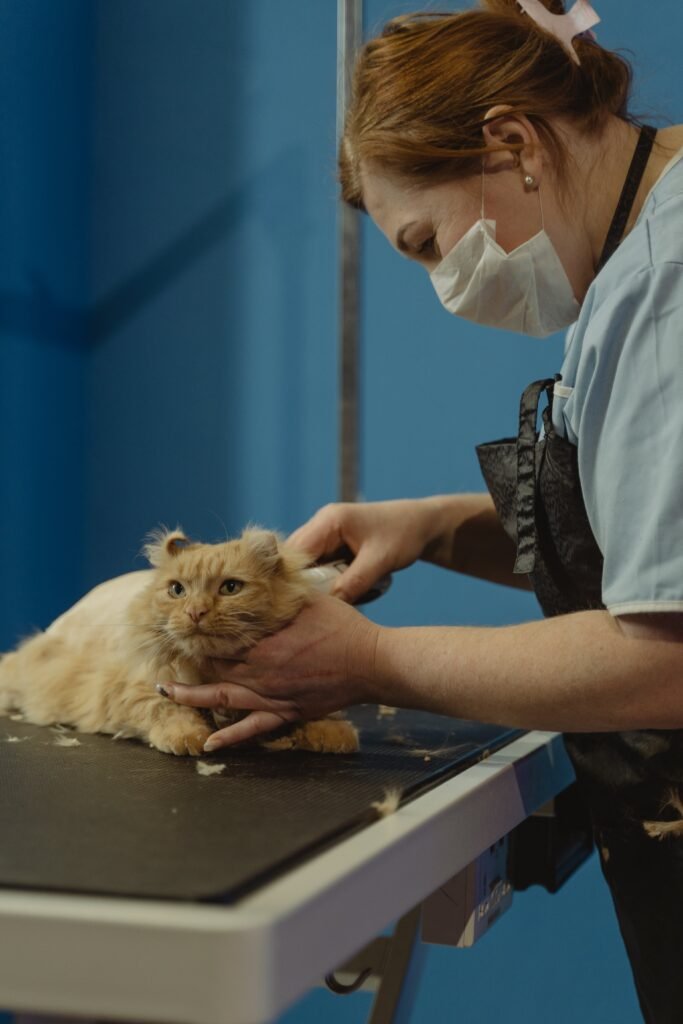Introduction
Our animal companions enrich our lives with happiness, company, and unconditional affection. But, just like humans, dogs can suffer from a range of health issues. As a responsible pet owner, it’s essential to be aware of the common health problems that can affect dogs and, more importantly, how to prevent them. This not only ensures that your dog leads a happy, healthy life but also helps avoid costly veterinary bills and heartache down the road.
In this article, we’ll explore the top 10 most common health issues in dogs and provide you with practical tips on how to prevent them.
1. Obesity
Like with people, dogs that are obese face serious health risks. Carrying extra weight can lead to a host of other health problems, including diabetes, heart disease, and arthritis.
Causes of Obesity in Dogs
The primary cause of obesity in dogs is an imbalance between calorie intake and energy expenditure. Overfeeding, giving too many treats, and lack of exercise are the main culprits. Additionally, certain breeds are more prone to gaining weight, and factors such as age and whether a dog has been spayed or neutered can also play a role.
How to Prevent Obesity in Dogs
Preventing obesity in dogs starts with a balanced diet and proper portion control. Feeding your dog high-quality food in the correct amounts is essential. Regular exercise is also crucial—daily walks, playtime, and activities like swimming can help keep your dog at a healthy weight. Monitoring your dog’s weight and adjusting food intake as necessary can prevent obesity from becoming a problem.
2. Dental Disease
Dental disease is one of the most common health issues in dogs, affecting up to 80% of dogs by the age of three. Poor oral health can lead to painful conditions like tooth loss, infections, and even organ damage if bacteria from the mouth enter the bloodstream.
Common Dental Problems in Dogs
The most common dental problems in dogs include gingivitis (inflammation of the gums), periodontal disease (infections of the structures around the teeth), and tooth abscesses. These issues often arise from plaque and tartar buildup on the teeth.
How to Prevent Dental Disease
Regular dental care is key to preventing dental disease. Brushing your dog’s teeth daily with dog-specific toothpaste helps remove plaque before it hardens into tartar. Dental chews can also aid in maintaining oral hygiene. Additionally, scheduling regular dental check-ups with your veterinarian ensures any issues are caught early and treated before they become severe.
3. Ear Infections
Ear infections are another common issue, especially in dogs with floppy ears like Cocker Spaniels and Basset Hounds. These infections can be painful and, if left untreated, can lead to more severe problems like hearing loss.
Symptoms of Ear Infections
Signs that your dog may have an ear infection include scratching at the ears, head shaking, redness or swelling inside the ear, and a foul odor. You might also notice your dog being more irritable or sensitive around their ears.
How to Prevent Ear Infections
Preventing ear infections involves regular ear cleaning, especially after baths or swimming. Use a vet-recommended ear cleaner to gently wipe away any dirt or wax buildup. It’s also essential to keep your dog’s ears dry, as moisture can create an environment where bacteria and yeast thrive.
4. Skin Allergies
Dogs can suffer from various skin allergies, which can cause significant discomfort and lead to secondary infections if not managed properly.
Types of Skin Allergies in Dogs
There are three main types of skin allergies in dogs: food allergies, environmental allergies (such as pollen, mold, and dust mites), and flea allergies. These allergies often manifest as itching, redness, and inflammation of the skin.
How to Prevent Skin Allergies
Preventing skin allergies can be challenging, but regular grooming and flea control are good starting points. Bathing your dog with hypoallergenic shampoos can help remove allergens from the skin. If food allergies are suspected, working with your vet to identify and eliminate the offending ingredients is crucial. For environmental allergies, keeping your home clean and minimizing your dog’s exposure to allergens can help.
5. Arthritis
As dogs age, they can develop arthritis, a painful condition that affects their joints. Large breeds are particularly prone to arthritis, but it can affect dogs of any size or breed.
Signs of Arthritis in Dogs
Common signs of arthritis include stiffness, limping, difficulty getting up or down, and a reluctance to engage in activities they once enjoyed. You might also notice your dog becoming more irritable due to the pain.
How to Prevent Arthritis
While arthritis cannot always be prevented, especially in older dogs, maintaining a healthy weight is one of the best ways to reduce the risk. Extra weight puts additional strain on the joints, exacerbating arthritis symptoms. Providing joint supplements, such as glucosamine and chondroitin, can also help support joint health. Regular, low-impact exercise like swimming can keep joints flexible without causing excessive strain.
6. Parasites (Fleas, Ticks, Worms)
Parasites are a common problem for dogs, and they can lead to a variety of health issues, from skin irritation to serious diseases.
Common Parasites Affecting Dogs
The most common parasites include fleas, ticks, heartworms, and intestinal worms. Each of these parasites can cause different symptoms and health problems. For example, fleas can lead to severe itching and skin infections, while heartworms can cause life-threatening damage to the heart and lungs.
How to Prevent Parasites
Preventing parasites involves using regular preventive treatments. These can include topical treatments, oral medications, or collars designed to repel or kill parasites. Keeping your dog’s environment clean—such as regularly washing bedding and vacuuming your home—can also reduce the risk of parasite infestations. For heartworm prevention, your vet can prescribe a monthly medication to protect your dog from this dangerous parasite.
7. Kennel Cough
Kennel cough is a highly contagious respiratory disease that can affect dogs, particularly those that spend time in close quarters with other dogs, such as in kennels, dog parks, or grooming facilities.
What is Kennel Cough?
Kennel cough is caused by a combination of bacteria and viruses, and it results in a dry, hacking cough, sometimes accompanied by a runny nose or sneezing. In severe cases, it can lead to pneumonia.
How to Prevent Kennel Cough
The best defense against kennel cough is vaccination. If your dog is frequently in contact with other dogs, particularly in environments like kennels, it’s crucial to keep their vaccinations up to date. Additionally, avoiding exposure to infected dogs and ensuring that any facility your dog visits follows good hygiene practices can help reduce the risk.
8. Urinary Tract Infections (UTIs)
Urinary tract infections are common in dogs and can cause significant discomfort if not treated promptly.
Symptoms of UTIs in Dogs
Signs of a UTI include frequent urination, straining to urinate, blood in the urine, and licking around the urinary opening. If your dog seems to be in pain while urinating or is having accidents in the house, a UTI could be the cause.
How to Prevent UTIs
To prevent UTIs, ensure your dog always has access to fresh, clean water, and encourage them to urinate regularly. Regular bathroom breaks, especially after drinking water, can help flush out any bacteria from the urinary tract before they cause an infection. Additionally, maintaining good hygiene, particularly in female dogs, can reduce the risk of UTIs.
9. Eye Problems
Dogs can suffer from a variety of eye problems, some of which can lead to vision loss if not addressed.
Common Eye Issues in Dogs
Common eye issues in dogs include cataracts, conjunctivitis (pink eye), and glaucoma. These conditions can cause symptoms such as redness, discharge, cloudiness in the eyes, or excessive tearing.
How to Prevent Eye Problems
Regular eye care is important in preventing eye problems. Gently cleaning around your dog’s eyes with a damp cloth can help remove debris and prevent infections. Routine veterinary check-ups can also catch issues early before they become severe. If you notice any changes in your dog’s eyes, such as cloudiness or redness, consult your vet immediately.
10. Hip Dysplasia
Hip dysplasia is a genetic condition that affects the hip joints, causing them to develop improperly. This condition is more common in large breeds like German Shepherds and Labrador Retrievers.
Understanding Hip Dysplasia in Dogs
Hip dysplasia occurs when the hip joint doesn’t fit together properly, leading to joint instability, pain, and eventually arthritis. Symptoms often include difficulty rising, reluctance to run or jump, and lameness in the hind legs.
How to Prevent Hip Dysplasia
While hip dysplasia is often genetic, maintaining an ideal weight can help reduce the risk or severity of the condition. Providing appropriate exercise that doesn’t put too much strain on the hips, such as swimming or walking on soft surfaces, can also be beneficial. In some cases, your vet may recommend supplements or early intervention to manage the condition.
Conclusion
Ensuring your dog’s health and well-being involves more than just feeding and walking them. Being aware of common health issues and taking steps to prevent them can significantly enhance your dog’s quality of life. Regular vet visits, a healthy diet, proper grooming, and preventive care are all essential in keeping your furry friend happy and healthy.
Remember, if you ever notice any signs of health problems in your dog, it’s always best to consult with your veterinarian. Early detection and treatment can make all the difference in your dog’s health.
FAQs
- What are the first signs of health issues in dogs?
- The first signs can include changes in behavior, appetite, energy levels, and physical symptoms like coughing, vomiting, or skin irritations. Always consult your vet if you notice anything unusual.
- How often should I take my dog to the vet?
- It’s recommended to take your dog for a check-up at least once a year. Puppies and senior dogs may need more frequent visits.
- Can diet alone prevent most dog health issues?
- While a healthy diet is crucial, it’s just one part of overall preventive care. Exercise, regular vet visits, and vaccinations are also important.
- What is the best way to keep my dog’s teeth clean?
- Regular brushing with dog-specific toothpaste, providing dental chews, and scheduling professional cleanings as recommended by your vet are the best ways to maintain dental health.
- Are some breeds more prone to certain health issues?
- Yes, certain breeds are genetically predisposed to specific health problems, such as hip dysplasia in large breeds or respiratory issues in brachycephalic breeds like Bulldogs. Understanding your breed’s risks can help in early detection and prevention.


